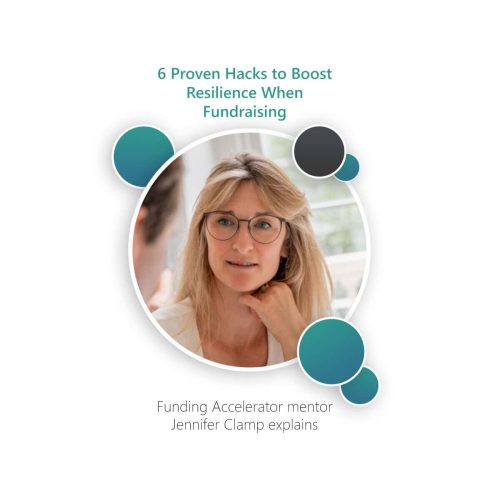
Understanding the Importance of Pitching for Start-up Success
As an aspiring entrepreneur, the ability to craft a compelling pitch is crucial for the success of your startup. Pitching is not just about securing funding; it’s about effectively communicating your business idea, showcasing your value proposition, and convincing potential investors to believe in your vision. A well-executed pitch can open doors to funding, strategic partnerships, and valuable mentorship – all of which are essential for propelling your startup forward.
In today’s competitive start-up landscape, a strong pitching skill set can make all the difference between securing the resources you need to grow your business or falling short of your goals. This article will guide you through the art of pitching, equipping you with the strategies and best practices to captivate investors and set your start-up up for success.
Crafting a Compelling Elevator Pitch
The foundation of a successful pitch lies in your ability to craft a concise, impactful elevator pitch. This short, succinct summary of your business should be no more than 60 seconds long and should be designed to pique the interest of your audience. Your elevator pitch should clearly articulate the problem you’re solving, your unique solution, the target market, and the key benefits your product or service offers.
To create a compelling elevator pitch, start by identifying the core essence of your business. What is the single most compelling reason why someone should care about your start-up? Distil this down into a clear, concise statement that captures the essence of your value proposition. Practise delivering your elevator pitch with confidence, ensuring that it flows naturally and leaves a lasting impression on your listeners.
Researching and Targeting Potential Investors
Before you begin pitching, it’s crucial to research and identify the right investors to target. Understand the investment landscape, including the types of startups and industries that different investors typically fund. Familiarise yourself with the investment thesis and portfolio of potential investors, and tailor your pitch to align with their specific interests and criteria.
Networking and building relationships with investors is also essential. Attend industry events, join relevant online communities, and leverage your personal and professional connections to gain introductions to potential investors. This will not only help you identify the right investors to target but also allow you to establish a rapport and better understand their investment preferences.
Presenting Your Business Model and Value Proposition
When pitching to investors, your primary objective is to clearly articulate your business model and demonstrate the unique value your startup offers. Begin by providing a comprehensive overview of your product or service, highlighting its key features, functionality, and the problem it solves for your target customers.
Outline your go-to-market strategy, detailing how you plan to acquire and retain customers, as well as your monetisation plans. Emphasise the scalability and sustainability of your business model, and be prepared to discuss your financial projections, including your revenue targets, cost structure, and path to profitability.
Importantly, ensure that your value proposition is clear and compelling. Explain how your start-up is uniquely positioned to address a significant market need, and the benefits it offers to your customers. Quantify the impact your solution can have, and be ready to provide evidence of traction or early validation from your target market.
Communicating Your Startup’s Unique Selling Points
In a crowded startup ecosystem, it’s essential to highlight the unique selling points that set your business apart from the competition. Identify the key differentiators of your product, service, or team, and weave them seamlessly into your pitch.
Perhaps your start-up has a proprietary technology, a seasoned leadership team, or a proven track record of successful execution. Maybe you’ve secured strategic partnerships or early customer traction that demonstrates the viability of your business. Whatever your unique selling points may be, ensure that they are clearly communicated and positioned as compelling reasons for investors to take notice.
Highlighting the Market Opportunity and Growth Potential
Investors are not only interested in your current business proposition but also the long-term growth potential of your startup. During your pitch, be sure to provide a comprehensive overview of the addressable market, including its size, growth trends, and the specific pain points or unmet needs that your solution addresses.
Demonstrate a deep understanding of your target customer base, their buying behaviours, and the competitive landscape. Quantify the market opportunity and the potential for your start-up to capture a significant share of it. Outline your plans for expansion, whether it’s into new geographic regions, product lines, or adjacent markets, and highlight the scalability of your business model.
Addressing Potential Risks and Challenges
While it’s important to emphasise the strengths and opportunities of your startup, it’s equally crucial to acknowledge and address potential risks and challenges. Demonstrate your awareness of the obstacles you may face, such as regulatory hurdles, technological disruptions, or competitive threats, and outline your strategies for mitigating these risks.
Investors appreciate transparency and a willingness to tackle difficult questions. By proactively addressing potential concerns, you’ll showcase your ability to think critically, anticipate challenges, and develop contingency plans – all of which are essential for long-term success.
Pitching Etiquette and Best Practices
Effective pitching is not just about the content of your presentation; it’s also about your delivery and the overall impression you make on your audience. Adopt a professional, confident, and engaging demeanour, and ensure that your body language, tone, and eye contact convey your passion and commitment to your startup.
Be mindful of the time allotted for your pitch and respect any time constraints. Practise your presentation to ensure that you can deliver it within the specified duration, leaving ample time for a Q&A session. Anticipate potential questions and prepare thoughtful, well-researched responses that demonstrate your deep understanding of your business and the market.
Finally, remember to follow up with investors after your pitch, expressing your gratitude for their time and attention. This not only maintains the relationship but also keeps your start-up top-of-mind, increasing the likelihood of a positive outcome.
Final Thoughts
Mastering the art of pitching is a critical skill for any aspiring entrepreneur. By crafting a compelling elevator pitch, targeting the right investors, effectively communicating your business model and value proposition, and adhering to best practices, you can increase your chances of securing the funding and resources needed to propel your startup to success.
Ready to take your start-up to new heights? Book a Funding Strategy Workshop to learn more about what investors expect in a winning pitch and how to find and connect with the right investors. Click Here to book your workshop
Further Reading Links:
Your Executive Summary Is More Important Than Your Pitch Deck!
Pitch Deck Secrets: These 3 Things Will Make Investors Love You
- How to Raise Money (Without Losing the Plot) - June 9, 2025
- How I Raised £250K – and Help Other Founders Scale with Equity Funding - June 9, 2025
- This Is Why A Business Exit Strategy Actually Attracts Investors - March 9, 2025




















